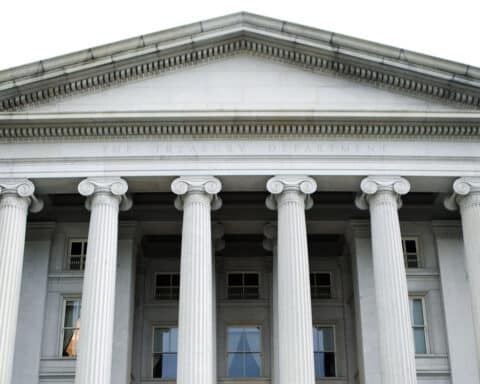
— Peter Tate, Long Beach, California
Answer: Yes, there is a kind of collective moral “fabric” that is rent through the bad behavior of individuals. However, there is a more biblical language that may be used. St. Paul says, “There should be no division in the body, but that its members should have mutual concern for one another. If one part suffers, every part suffers with it; if one part is honored, every part rejoices with it” (1 Cor 12:25-26). In other words, there is no such thing as a private or merely personal act. Our sins, as well as our acts of virtue, have consequences, not only for ourselves but for the culture and people around us. For example, we have long been lectured by others that “I can do as I please with my own body.” And, “Private acts between consenting adults are no one else’s business.” But the next thing you know, there are demands for legalized abortion, court cases over child custody, demanded legislation for no-fault divorce and every other public concession you can imagine for “private” behavior. The point is, as you note, that private behavior has public consequences.
Not naming angels
Question: I was recently told that I should not give a name to my guardian angel. Please explain this.
— Rose Manuel, San Diego
Answer: A document written in 2001 by the Congregation for Divine Worship entitled “Directory on Popular Piety in the Liturgy: Principles and Guidelines” says, “The practice of assigning names to the holy angels should be discouraged, except in the cases of Gabriel, Raphael and Michael, whose names are contained in Holy Scripture” (No. 127).
While the Congregation does not offer reasons for discouraging the practice, I would like to offer a couple.
First, there is the understanding of what a name is. For most of us in the modern Western world, a name is simply a sound we go by. But in the ancient, biblical world, and even in many places today, a name has a far deeper meaning. A name describes something of the essence of the person. This helps explains the ancient practice of the Jews to name the child on the eighth day. The delay gave the parents some time to observe something of the essence of the child and then, noting it, they would name the child. Indeed most biblical names are deeply meaningful and descriptive. It is presumptive to think that we can know enough of the essence of a particular angel in order to be able to assign a name. Hence, assigning a name seems inappropriate.
The second reason is that assigning a name indicates superiority over the one named. Parents, who are superior over their children, name them. However, in the case of angels, they are superior to us. Though we often speak of them as serving us, they do this on account of their superior power and as guardians. Thus, God commands us to heed their voice (cf. Ex 23:20-21). So naming an angel does seem problematic. Though some say their angel told them their name, let me respectfully offer that this is not likely the case, since it seems unlikely that an angel, or the Holy Spirit, would act contrary to the directive of the Church, herself graced to speak for Christ.





